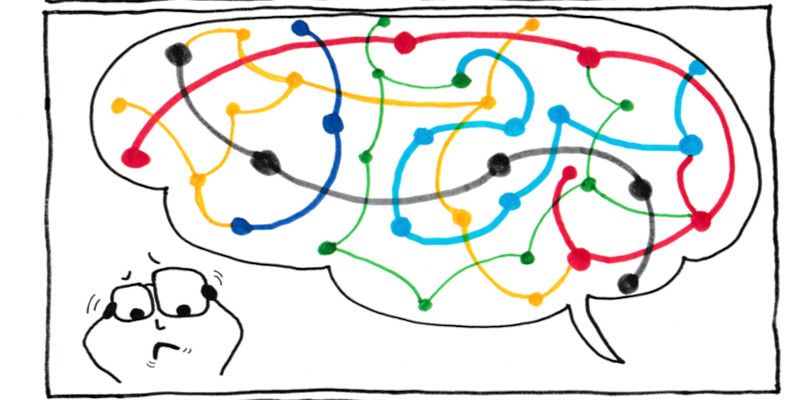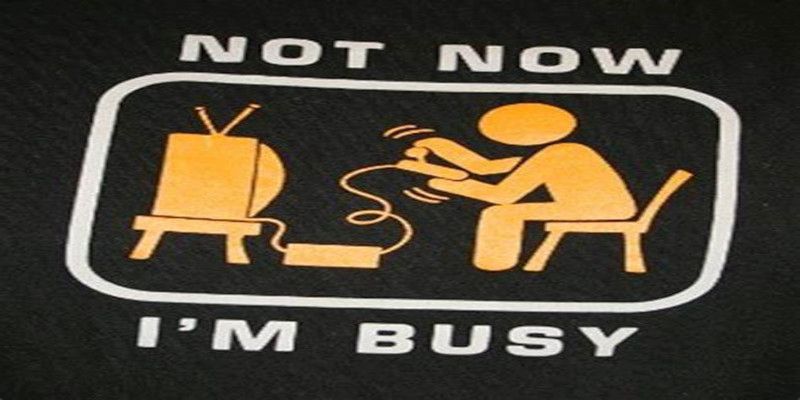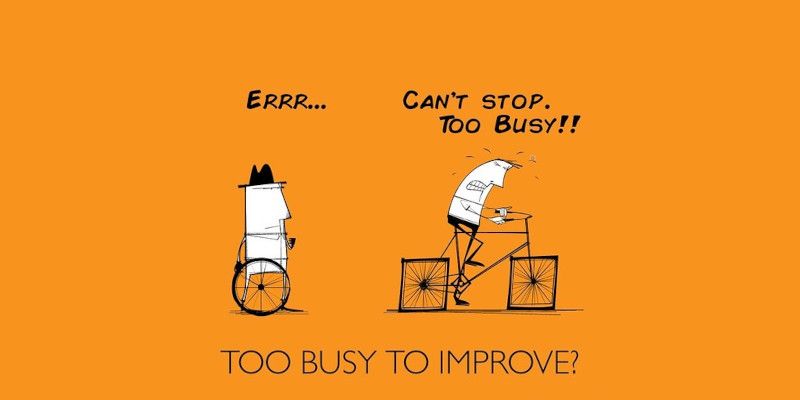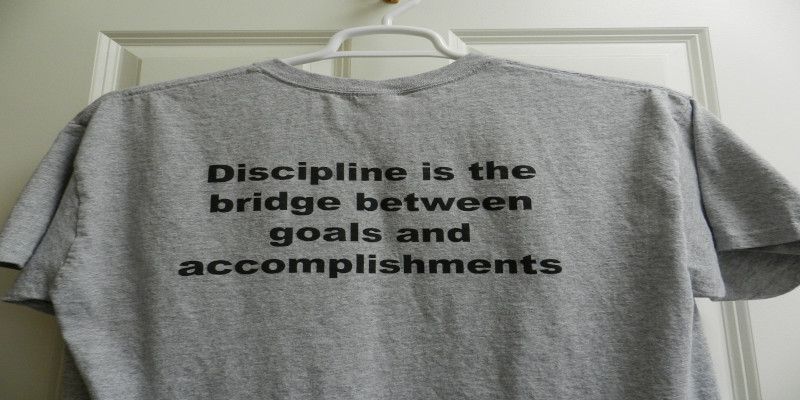Table of Contents
TogglePeople typically have multiple interests they’re passionate about and willing to pursue. Yet, spreading yourself too thin typically doesn’t lead to success.
Sometimes, doing less is more. Focusing on one, or a few things at most, increases productivity. It ups the quality, effort, and time we can invest in that given thing.
Let me explain why stretching yourself too thin typically doesn’t work.
Why spreading yourself too thin doesn't work

Prevents expertise and technical prowess
Spreading yourself too thin prevents building up the necessary amount of expertise and technical prowess because you don’t have enough time to master one specific craft. We also tend to become sidetracked by the many other things we want to become proficient at.
Mastering one trade takes a lot of dedication, time, effort, and sometimes money. This is something that usually gets lost if we’re trying to do too many things at once. What regularly ends up happening is that we don’t do anything good at all.
Lower quality of work
Stretching yourself too thin will result in a lower quality of work. Possibly due to being distracted, but other possible reasons include not having enough time, or even energy to put into your work.
I think it’s better to do one thing excellent than doing many things mediocre. I think it is excellence that leads to success, and not doing many things second-rate. Quality over quantity.
Getting distracted
When we try to do too many things at once, we tend to get distracted and sidetracked because there are too many things we need to remember and do.
Multitasking will almost inevitably lead to a decrease in work quality and will cause distractions which will further decrease your work efficiency and output.
That’s why you shouldn’t try to accomplish too many things at once. It is usually the people who are hyper fixated on just one thing who accomplish success.
Failure to build leadership skills

A lot of people think achieving their lofty goals depends solely on themselves. However, success can frequently be attributed to leadership skills as well. Nevertheless, developing leadership skills takes a lot of time and conscious effort at first.
Individuals who are multitasking a lot frequently get so caught up in trying to clean up the mess and trying to keep it together that they tend to forget to develop their much-needed leadership skills.
With well-developed leadership skills, one can learn to recognize the talent in others. We can learn to be humble enough to acknowledge that delegating some of the enormous workload might increase efficiency and success as a result.
It can lead to chronic stress
Chronic stress might take hold of you when you spread yourself too thin. Doing too many things at one given moment can pile on the tension, which can lead to chronic stress if left unchecked.
Someone who is suffering from chronic stress has an increased chance of getting mental and physical health problems down the road due to the increased susceptibility to diseases.
How to prevent this from happening? Take the time to relax often. Take some time out of your busy day to wind down.
Think of it this way, you, nor anyone else, benefits if you get physically or mentally ill and are unable to work. And even if you manage to continue working in that stressed-out state, you’ll be less effective because you are feeling bad, distracted, and because you have less energy.
You only have one body and one life, use it wisely.
Increased chance of a breakdown and burnout

Stretching yourself too thin leads to an increased chance of a breakdown and burnout from stress overload.
The human mind and body can only take so much. And chronic stress is extremely unhealthy and taxing on both our mental and physical systems. It can lead to depression, physical injuries, anxiety, and even rapid aging.
Try to maintain healthy stress levels to counteract this phenomenon. Relax frequently, and don’t take life too seriously.
Your passion for your craft diminishes
Doing too many things at once can diminish your passion for your craft.
You might feel like you’ve got less energy to dedicate to your trade. You might also feel lethargic, depressed, and like you no longer have enough time to become an expert at one given skill.
This could be a sign of spreading yourself too thin. But, it could also be a clue that you might be, standing on the border of depression. Honest, objective observation of oneself is needed to figure out what the true cause of your decreased passion for your craft is.
Warning signs you're spreading yourself too thin

Tired all the time
Spreading yourself thin can cause you to feel tired all the time. It can be a sign that you’re doing too many things at once. It might be a clue that you’re overworked and need some rest and time away from work.
Being tired means you’re not as productive as you could be, either. Because it will decrease your concentration and the quality of your work. Not to mention that you’re more prone to making mistakes when you’re exhausted.
Breaking down and burnout
Suffering a burnout means some problems are going on at work. It can be a sign of being overworked and spreading yourself too thin. If you’re an employee, this can be the result of an over-demanding boss.
Learning to say no, to set boundaries, and to delegate can all be useful tools to avoid stretching yourself too thin.
It’s up to you personally to guard both your mental and physical health. It’s fun if other people take your health into account, but don’t go around expecting others to do it for you. Because many people won’t and only care about themselves and advancing their own careers.
You never have downtime

If you never have downtime, then that means you’re too busy doing other things. And doing overly many things at once can result in not having any, or not enough downtime to stay relaxed.
Working hard and diligently is good, and certainly necessary to become successful. But downtime is also vital to recharge your batteries in order to sustain that large effort over time.
Success is rarely achieved instantly, but typically due to putting in a continuous effort over a longer period.
You don’t have any free time
If you’re constantly working or stuck thinking about work without having any free time to go out with friends, watch a movie, or simply kick back and relax, then that might be a sign you have too little free time.
You need to make your own health a priority. And free time away from work is essential to keep yourself mentally and physically healthy. You can’t work as efficiently if you’re feeling unwell as you would if you were healthy.
You’re constantly drowning in work and overbooked

When you’re drowning in work, and are overbooked for a long time, is when you know that you’re working too much. It means you’re not taking enough time off to relax and work on other skills that you should be developing, such as leadership skills.
Life is more than working alone, and you should make it a point to take some time off from time to time to enjoy and live your life.
You’re frequently in a bad mood
When you’re frequently in a bad mood, while you’re normally a chill and cheerful person, is when you know that something is up.
Being in a bad mood when you’re normally a happy person is a telltale sign that you’re overworked. And being stuck in a chronic state of feeling stressed out is affecting your thoughts and emotions for the worse.
You’re always working
There’s no better sign of overworking than … Always working!
Again, taking regular breaks and some “me” time to wind down is key to keeping yourself mentally fresh.
Working hard is good, and is indispensable to reach your goals. But working all the time isn’t beneficial, nor is it the way. Sometimes less really is more.
You’re sick often

Getting sick often could be a coincidence. But often, it’s a sign that you’re overworked, suffering from chronic stress, and not getting enough sleep due to working that much and not being able to “turn off” your brain.
The root of the problem in this specific case is working too much and spreading yourself too thin. Never substitute your sleep for anything because we need enough hours of sleep to be healthy and to function properly.
You can’t concentrate
Being unable to concentrate is also commonly called brain fog.
It affects us when we don’t get enough sleep, but can also potentially happen as a side effect when we need to take a lot of medication, for example.
Being unable to concentrate well will not be advantageous for delivering quality work. As well as all the mistakes that we possibly make when we’re not all there.
A regular, steady sleeping pattern where you get enough hours of deep sleep can and should be established to prevent this from occurring.
You suffer from anxiety

Anxiety can be an extremely deliberating experience. People who are stressed out, especially those who are for a prolonged period, often complain about feeling anxious.
There can be a lot of possible reasons for feeling anxious. But being overworked and stressed out can be a simple, yet accurate explanation of why you’re feeling that way.
Eating a bad diet
Again, multiple reasons can exist for eating a bad diet instead of healthy food.
You may eat junk food because you like it and simply crave it. But it can also be the case that you’re eating a bad diet because you don’t have time to cook a nutritious meal.
Yet, eating a well-balanced diet isn’t something you should be saving time and effort on. Seeing as your meals will fuel your body during the day. This means that if you eat a healthy and varied diet, then your body will have ample energy to sustain itself to do the things you want.
Not smiling anymore
If you find yourself smiling less than you usually do, then it might be because you’re suffering from working too many hours.
Of course, that’s not the only possible or reasonable explanation. If you’ve just lost a close family member, for instance, then it’s quite obvious that the reason is not (or at least not alone) feeling overworked.
Try to find joy in life from the little things that this experience has to offer. Living is more than simply work. We need to actively chase the things that make our lives worth living, such as family, and the road towards self-improvement.
Finding no pleasure in things

Closely related to the previous point. If you find that life has sucked all the joy and pleasure out of you, then there must be a reason for that.
You might even be suffering from depression. Luckily, it’s curable, or at the very least treatable. But depression isn’t something that just happens on its own. Like all things, there’s a reason why we get depressed. And the explanation is that something is out of wack, out of balance so to say.
In this instance, it’s because we’re working too much and not spending enough time on ourselves and our improvement as human beings.
Working a lot of hours can lead to becoming an expert at something. But general self-improvement is more than just work alone. And you should strive to be better in all aspects of your life to get the most out of it.
Dulled senses and emotions
Spreading yourself too thin can cause dulled senses and emotions. These numbed emotions can happen due to feeling overwhelmed and stressed out all the time.
Muffled senses and emotions can be signs that you are suffering from depression. It’s at the very least a clue that you should be getting more rest and taking some more time off from work.
Weight fluctuations

It has been established that you gain weight easier if you’re sleep-deprived since cortisol, which is your stress hormone, is more active which will lead to burning less fat and calories.
Likewise, it’s also possible that you work so many hours and at such a rapid pace that you might even forget to eat. This can lead to losing a lot of weight in a short amount of time.
Either way, it signifies that you should be taking more time for yourself to eat a clean diet that will sustain you over time, while simultaneously establishing a decent sleeping pattern.
Feeling overwhelmed
We all tend to feel overwhelmed at times. Life happens, and it can have some rough, and unexpected moments.
We tend to feel overwhelmed when too many unexpected things that we feel are negative experiences happen at once.
Stretching ourselves too thin means we can feel overworked and like we don’t have enough time and energy to focus on one given thing. This can cause us to feel overwhelmed and like we’re not in control of our lives.
How to not spread yourself too thin

Go after your passion
Going after your passion is indispensable because we deliver our best work when we’re intrinsically motivated and enthusiastic about something.
If we truly do something with our heart and soul, then the quality will typically be representative of that drive. We will put more time and effort into the things we enjoy. It makes us even want to go that extra mile to make sure we succeed.
Evaluate your daily life and routines
Evaluate your current life so you don’t spread yourself too thin. Think about what things you’re currently doing that you shouldn’t be doing, or what you’re doing inefficiently. Things that are too time-consuming should be changed into more manageable tasks.
In other words, find out what costs too much time, what things you want to spend less time on, and especially what stuff you want to spend more time on.
To become successful, you most likely will want to focus on one, or at least very few, specific things to prevent spreading yourself too thin.
Prioritize your life
Prioritize what things you want to put more time into and in what aspects of your life you want to save some time. You need to make value judgments to figure out what you want to put in the forefront. What do you find the most important?
Sometimes, you can’t simply spend more time on something, since we don’t want to bury ourselves in work and reduce our efficiency. Thus, we need to see what we find less essential and don’t mind spending less time and energy on.
Create a schedule

Creating a visible schedule is an easy way to make sure that you follow the things that you prioritized yourself in your life.
It can help to reduce the mental stress you would experience by having to remember the things you need to do, and in what order you would need to execute them.
Furthermore, keeping a tight schedule regarding what you need to prioritize in your own business to cover your weaknesses is essential to reach success and create a thriving business.
Manage your time efficiently
Managing your time effectively is essential, no matter what you decide to do in life.
There’s only so much time in a day that we can use, and we need to use it with purpose, so we can accomplish the things that we want to do in life.
It’s not only businessmen who need to manage their time efficiently, but also parents, people going to college, and even people who enjoy playing a lot of sports.
You want to manage your time in a manner that allows you to strike a balance between work and pleasure without having to sacrifice quality.
Be disciplined

Being disciplined means you can keep yourself to the plan you’ve previously deliberately made to be more efficient and to prevent spending too much time on the things that don’t matter in the end.
Let’s say that you typically spend 4 hours watching TV all day, then you might want to stick to your plan of toning that down to 1–2 hours each day.
You can then use that gained time to focus on mastering your craft. Just imagine the things you could do and how much better you would be if you would spend just one or two extra hours of work each day on one single thing. It’s mind-boggling.
Understand your limits

Understanding your limits is critical for a multitude of things.
For starters, it keeps us humble and firmly with two feet on the ground. This will prevent us from becoming arrogant, which can keep us from learning new things.
What is more, it can expose our weaknesses, which can then be used to delegate some work to other personnel who are more specialized and better at those given things.
It also frees up some valuable time for ourselves that we can use to better ourselves in some way or to relax. Be it by expanding our leadership skills, or by taking some time off to wind down and relax.
Learn to delegate
Learning to delegate work to other people, especially those that you know are more competent at those things, is important to practice your leadership skills. It also allows your coworkers to build up expertise, and to prevent yourself from becoming overloaded with work.
A lot of people lack the humbleness and necessary amount of introspection that’s needed to analyze and admit to oneself and others that you’re not the best at everything, and that others are better at some given things.
Yet, acknowledging that fact and allowing others to execute their expertise is required to reach great heights.
Get smarter

There’s not much we can do to raise our fluid IQ, it’s something we’re kinda born with. But, what we can do is increase our crystallized IQ, which refers to the knowledge and wisdom we acquire during our lifetime.
If done right, crystallized IQ keeps going up with age if we’re a lifelong learner. Wisdom can be important as well in life and is not the same as intelligence.
Wisdom is knowing how to apply that intelligence. When to talk, when to listen, and when to keep your mouth shut to reach success.
Take some time to relax
Work hard, play hard.
Simply working hard without having downtime to blow off some steam will lead to an accumulation of mental stress and strain. Sooner or later, this will lead to spreading yourself too thin and a reduced amount of quality, time, and effort that goes into your craft.
If we don’t want this to happen to ourselves, then we must make it a necessity to take some time off from work. All the while doing some other things we enjoy such as exercising a hobby like soccer, or tennis is ideal to take our mind off work. This will serve as a way to recharge your batteries and sustain your effort over time.
Don’t say yes to everything
Nobody likes a yes man, except your bosses and colleagues who want to take advantage of you. But, they won’t respect you for it. Rather, they will see you as weak-minded and as someone unable to say no, which is basically what it comes down to.
But being able to say no with a straight face is a valuable tool. It is priceless to save yourself from becoming buried in work. This allows you to do the work you do with the utmost quality without having to spread yourself too thin.
Create healthy, purposeful routines

This one is more of an overarching component of all the things I’ve told today.
What it comes down to is that you want to create healthy routines that serve the purpose of getting and keeping you on course toward your goals.
Simultaneously, we want to get rid of all the bad habits that prevent us from accomplishing our dreams. Like for example, drinking excessively, using drugs, watching too much television, and so on.
Those bad habits might feel good in the short term since they satisfy some basic desire within ourselves with instant gratification. But to reach our long-term goals, we will need to forego this desire for instant gratification and delay it to turn it into an even larger, yet delayed gratification.
Frequently Asked Questions (FAQ)
What does, “stretched too thin” mean?
Being stretched too thin means trying to do too many things at once. And due to spreading yourself too thin, you don’t have enough time or money to pay attention to the things you want to do.
They often end up doing too many things at once, yet execute every single one of them poorly. As a consequence, they tend not to become successful due to having too little time, and expertise, and becoming distracted by those other things and interests.
Spread oneself too thin origin
The origin of spreading oneself too thin came from Jonathan Swift, who used that particular sentence to convey that something should happen less frequently.
He was born in Dublin, Ireland, and lived from 30 November 1667 to 19 October 1745. He was an author, essayist, and satirist.
Synonyms of spreading yourself too thin
There’s a variety of ways to say “spread yourself too thin.” Possible synonyms are:
- Spreading yourself too thin
- Being stretched too thin
- Being spread too thin
- Overdo
- Overdo things
- Overextend oneself
- Bite off more than one can chew
- Burn the candle at both ends
- Take on too much
- Stay on the treadmill
- Go too far
- Keep your nose to the grindstone
- Slave
Conclusion

Spreading yourself too thin doesn’t work. It’s better to concentrate on just one, or a few things at most to be the most productive one can be.
Make sure you’re not spreading yourself thin by analyzing yourself and the situation you’re currently in as objectively as possible.
If you find that you’re currently doing too many things at once and that it’s hampering your productiveness, then the tips in this article can help you learn how to not spread yourself too thin.
Call to action
Focus on just one thing, or very few things at the most, to become competent.
The more attention, time, effort, and money you can spend on one thing, the better your chances are to achieve your goals since you will be more productive and can consequently deliver higher-quality work.
Sometimes, doing less really is more.














1 thought on “Why spreading yourself too thin doesn’t lead to success”
Comments are closed.